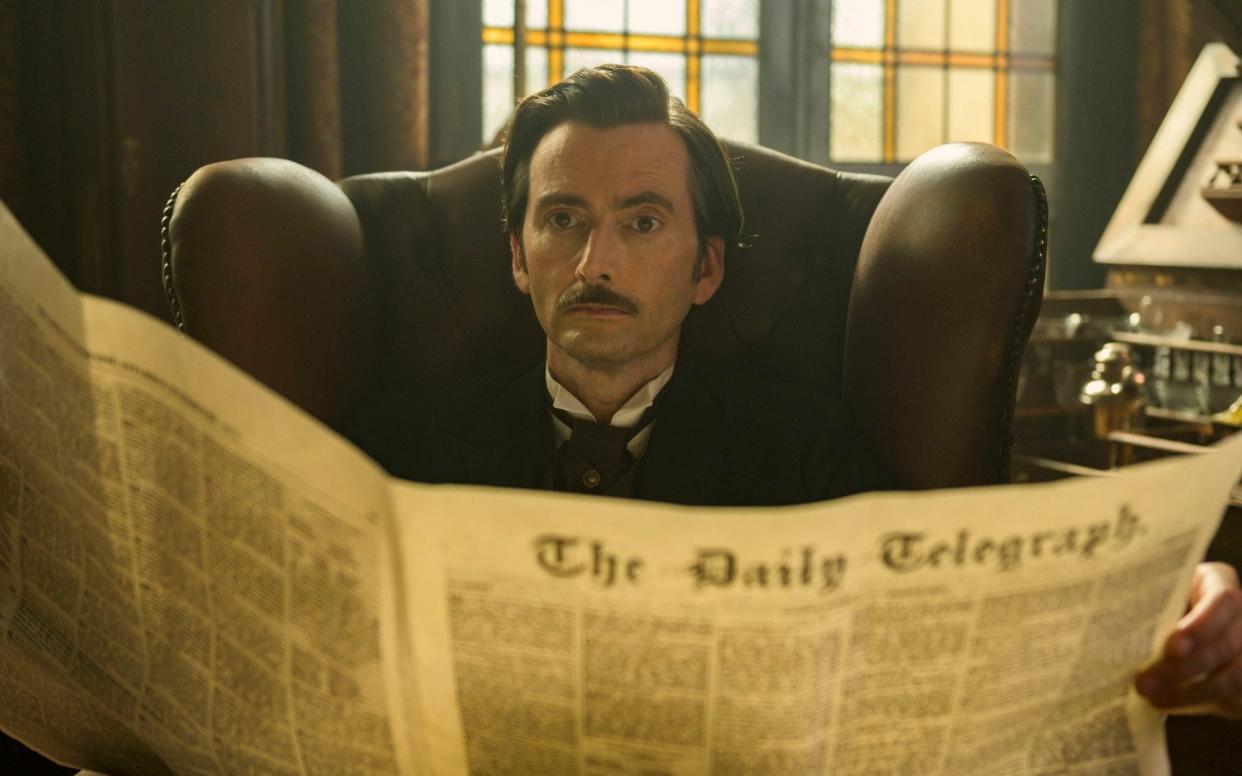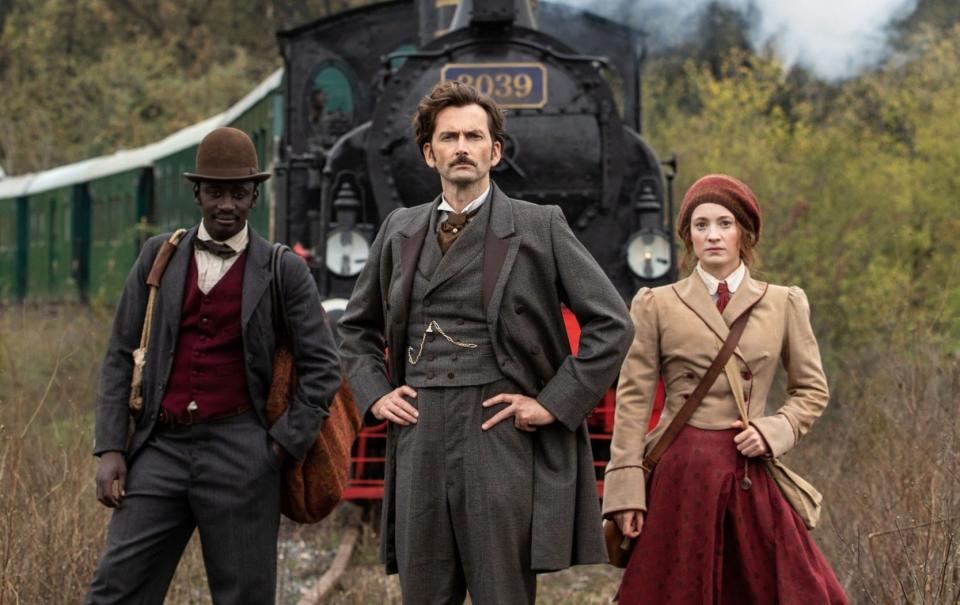David Tennant: Around the World in 80 Days shows 'alarming' side of British Empire

A new BBC One adaptation of Around the World in 80 Days will highlight the “alarming” nature of the British Empire, according to its star.
David Tennant said the eight-part drama, which begins on Boxing Day and is aimed at a family audience, will explore “the racial and sexual politics” of Victorian England.
He plays Phileas Fogg in the updated version of Jules Vernes’ novel. Ibrahim Koma, a French actor of Malian heritage, plays Passepartout, while the original character of Detective Fix has been replaced by Abigail Fix, an intrepid journalist.
Speaking to Radio Times, Tennant said his Fogg was a “damaged” character.
“In many ways, Phileas Fogg represents everything that’s alarming and peculiar about that old sense of British Empire. Potentially, it’s a story about an England that should elicit very little sympathy,” he said.
“Verne chose to make Phileas Fogg a particularly stuffy Englishman. We’re showing a different type of stuffy Englishman. He’s very damaged, everything is a trauma for him.”
The BBC has described the drama as “an ambitious interpretation of this classic novel for a new generation”. Other actors to have played Fogg include David Niven in 1956 and Pierce Brosnan in 1989.

In a separate interview at this year's Cannes Film Festival, Tennant said the 1873 novel was “of its time” and the television series would approach things from a 21st-century perspective.
“It seems almost an obvious thing to do to make one of our main characters female; it seems rather regressive not to,” he said.
“The sexual politics of the time are investigated, and it is also brilliant that Ibrahim, who plays Passepartout, is a black man. That’s also something that I think is right and proper about having a diverse cast.
“This is an unusual cast of characters travelling the world, but we use it to look at the racial and sexual politics of the time.
“I think that is the right way to tell that story in the 21st century - not to pretend that the world was some sort of wonderful melting pot back in the 1870s.”
In his Radio Times interview, Tennant questioned the Government’s desire to have “distinctively British” television shows, asking if what they actually desire was “programmes that have a certain political viewpoint”.
“Is it just a government pleading for the artist to be more sympathetic towards it? Why would the government feel they need more sympathy directed towards them? Perhaps that’s a question they should ask themselves, rather than trying to blame it on the television industry,” he said.

 Yahoo News
Yahoo News 
